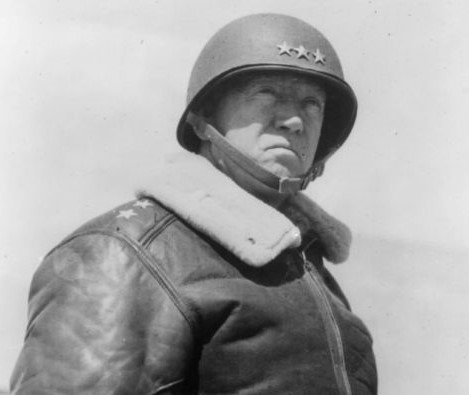Posted on September 29, 2025
Wanting Bagram Back
Trump indirectly admits a mistake
by
Daniel Clark
Is the
"forever war" about to become an over-and-over-and-over-again war? It depends on how serious President Trump is,
which is always open to question.
Trump has
often said he would have retained possession of the Bagram Air Base, even
though that aim directly conflicts with the agreement he negotiated to withdraw
all American forces from Afghanistan, which was signed by his secretary of
state, Mike Pompeo. Now, he is demanding
that if the Taliban don't return the base "to those that built it, the United
States of America, BAD THINGS ARE GOING TO HAPPEN." (Caps in original Truth
Social post, of course.) The answer from
the Taliban, to the surprise of nobody sensible, has been no.
 If it's possible for the most evil
people on the face of the earth to be polite, they must have been, not to have
pointed out that our president is incorrect about the origin of the air base,
which was actually built by the Soviet Union almost 75 years ago. The United States had only taken possession
of it shortly after the 2001 invasion, and occupied it up until President
Biden's haphazard withdrawal, twenty years later. If Trump means to argue, as he does in the
case of the Panama Canal, that because we built it we have a perpetual claim regardless
of any agreement to the contrary, then he doesn't even have that flimsy premise
to back up his point.
If it's possible for the most evil
people on the face of the earth to be polite, they must have been, not to have
pointed out that our president is incorrect about the origin of the air base,
which was actually built by the Soviet Union almost 75 years ago. The United States had only taken possession
of it shortly after the 2001 invasion, and occupied it up until President
Biden's haphazard withdrawal, twenty years later. If Trump means to argue, as he does in the
case of the Panama Canal, that because we built it we have a perpetual claim regardless
of any agreement to the contrary, then he doesn't even have that flimsy premise
to back up his point.
In a
recent interview in London, Trump explained, "One of the reasons we want the
base is, as you know, it's an hour away from where China makes its nuclear
weapons." In previous pronouncements on
the issue, he has also cited the proximity of the base to Iran. Obviously, both China and Iran were already
our adversaries when Trump brokered what his former national security adviser,
H.R. McMaster, accurately described as "a surrender agreement." That makes the total abandonment of
Afghanistan rather a conspicuous tactical misjudgment for an
eleventeen-dimensional chess grandmaster.
So why would he have initiated such a negotiation, if he was at all
concerned about Afghanistan's usefulness to us in opposing those hostile
nations that border it?
Because he
wasn't. This geopolitical motivation of
his is a Bushian "interventionist" consideration that the Code Pink Elephants of
his party would have opposed, and which he never prioritized until after he had
satisfied his mindless mantra about "ending the forever wars." Now, he wants to occupy part of another
country in order to keep tabs on our enemies, for the purpose of preempting a
future attack. What must the Tucker and
Tulsi crowd think of that?
 Had Trump really wanted the U.S. to
keep control of Bagram, there was a perfectly simple way to go about it. Just don't give everything away. Keep the elected Afghan government in power,
while weaning it off its dependence on us for logistical and air support so
that it would be able to defend itself.
In the meantime, maintain enough of an American military presence to
continue to repel the Taliban whenever they arise, however long that might
take. In other words, finish the
war; don't "end" it.
Had Trump really wanted the U.S. to
keep control of Bagram, there was a perfectly simple way to go about it. Just don't give everything away. Keep the elected Afghan government in power,
while weaning it off its dependence on us for logistical and air support so
that it would be able to defend itself.
In the meantime, maintain enough of an American military presence to
continue to repel the Taliban whenever they arise, however long that might
take. In other words, finish the
war; don't "end" it.
During his
first term, Trump undermined the Afghan government by excluding it from the
negotiations by which he delivered its country into damnation. Consequently, we have an enemy instead of an
ally there today. Now, he proposes to reestablish
a military base in a place where it would be surrounded, by the same party that
had been an accessory to the 9-11 attacks both before and after the fact. Never mind multidimensional chess; these are
the tactics of somebody who is fully capable of losing a game of tic-tac-toe,
even if he goes first.
President
Trump will never come out and say in plain English that he was wrong to surrender
Afghanistan, but the desperation with which he now demands to undo the result
gives him away. Outcomes matter. There is nothing America-firsty about a
self-imposed defeat, especially after our forces had so thoroughly routed the
enemy in the field. There is nothing
noble about yielding to an aggressor and calling it peace. When you ask your enemy what he wants in exchange
for allowing you to "end" a conflict, you are going to lose.
General
Patton famously said that the very idea of losing is hateful to America. This is apparently no longer true, but it
ought to be. Let this episode, which ends
with our president being overruled by the evildoers, serve as a reminder of
that.
The Shinbone: The
Frontier of the Free Press